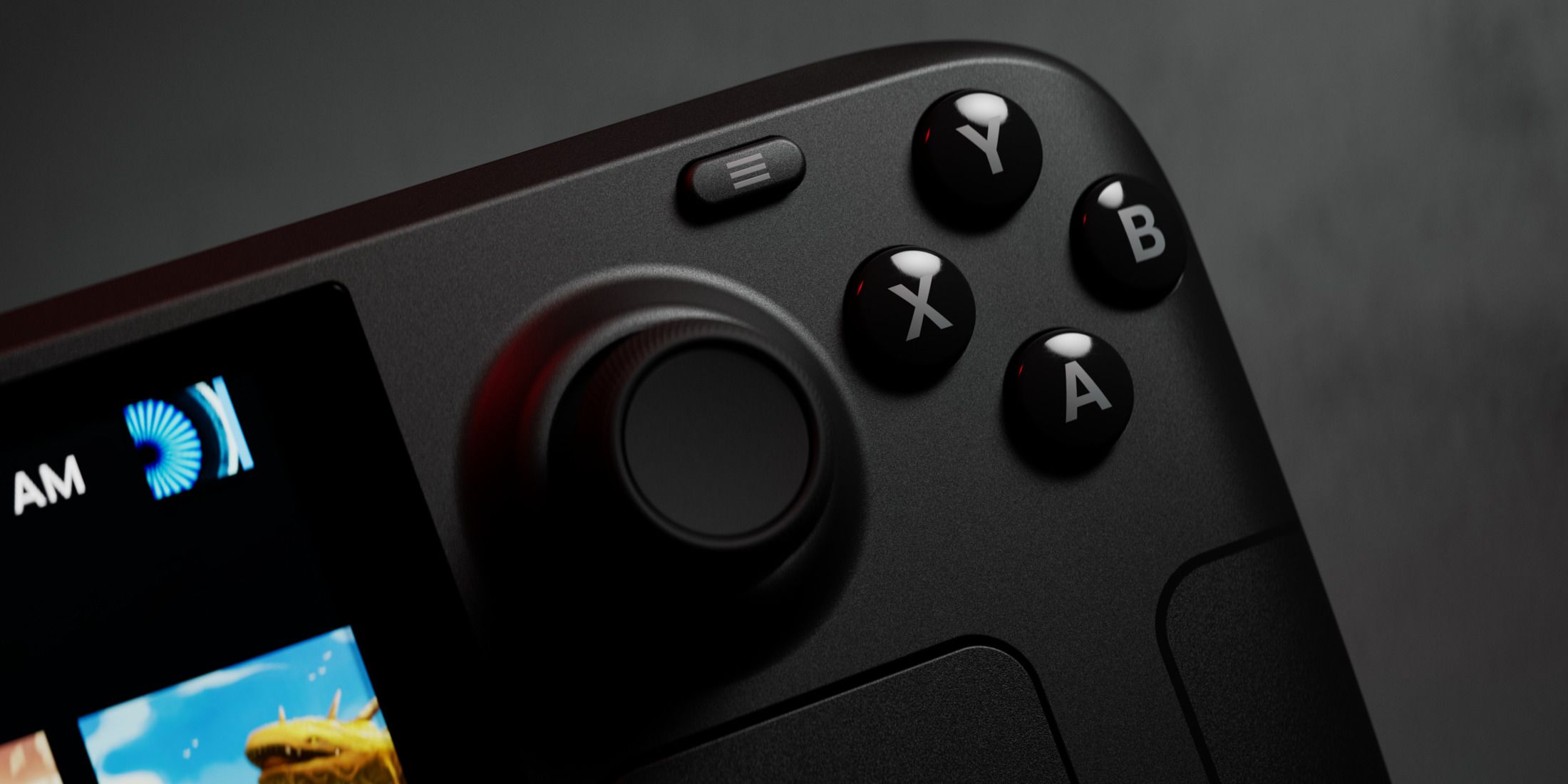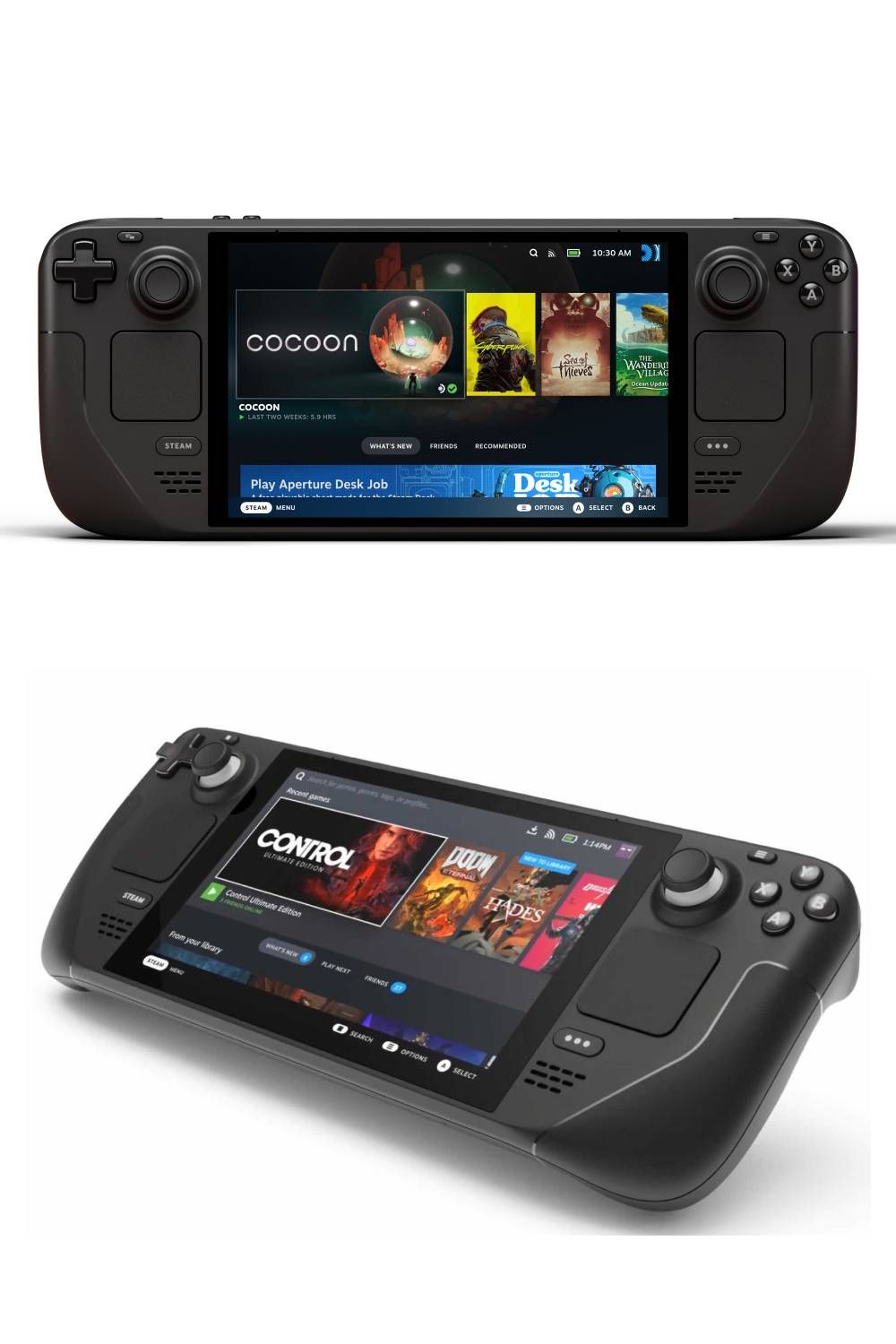Highlights
- Valve plans to expand the reach of its well-optimized SteamOS software to rival handheld devices like Asus ROG Ally and Lenovo Legion GO.
- The Steam Deck’s success lies in its console-like experience and affordability, making it a strong contender in the handheld gaming PC market.
- While Valve works on supporting Windows-powered competitors, players can look forward to a user-friendly interface on other handheld devices.
Valve has confirmed that it will eventually make the Steam Deck‘s Linux-based SteamOS operating system available for rival handhelds like the Asus ROG Ally and Lenovo Legion GO. The well-optimized and console-like experience of SteamOS has long been a big selling point of the Steam Deck, and now Valve is working on extending the software to its Windows-powered competitors as well.
The Steam Deck has been a highly successful device for Valve since it launched back in February 2022. Not only is it roughly equivalent in power to a PlayStation 4, but the handheld also retailed for a far cheaper price than the enthusiast-focused options at the time. Since then, companies like Asus, Lenovo, and MSI introduced their contenders in the handheld gaming PC space, but the Steam Deck’s slick, easy-to-use operating system remains a significant advantage over its Windows-based rivals, as Windows 11 isn’t quite optimized for use in a handheld form factor yet.
Related
Microsoft Experiments with a Handheld Gaming Mode for Windows 11
Microsoft considers the possibilities of developing a Handheld Mode for that would allow gamers to enjoy Windows 11 on handheld devices.
SteamOS is highly versatile, as it allows Steam Deck users to operate it as either a desktop PC or a handheld gaming console with a dedicated interface. Windows 11 doesn’t offer these options yet, but it seems Valve itself is willing to support its Windows-powered competitors. After a recent SteamOS update mentioned support for “extra ROG Ally keys,” The Verge reached out to Valve designer Lawrence Yang for clarification. Yang then confirmed that the company is indeed working on “adding support for additional handhelds on SteamOS.” However, Yang also stated that it might take a while, as SteamOS isn’t quite ready to “run out of the box yet” on third-party devices.
Valve Will Release SteamOS on Third-Party Devices, But There’s a Catch
A full release of SteamOS has been rumored for a long time, and even though it’s going to take longer than some may have anticipated, Valve’s recent confirmation is an encouraging development nonetheless. It’s unlikely that Asus, MSI, and Lenovo will start selling their handhelds with SteamOS instead of Windows, though, as their chipsets are validated for the latter by Microsoft, and switching to a completely different operating system would introduce logistical hurdles. Still, players who use the stronger Windows-based handhelds but prefer the Steam Deck’s more user-friendly interface will have the best of both worlds at some point in the future.
While some may see this as Valve giving away one of the Steam Deck’s biggest trump cards to its rivals, the broader purpose behind it is to expand the reach of Linux as an operating system. The Steam Deck did well to increase gaming on Linux, but with Microsoft still retaining its operating system monopoly with Windows, Valve likely wants a slice of the pie as well.









